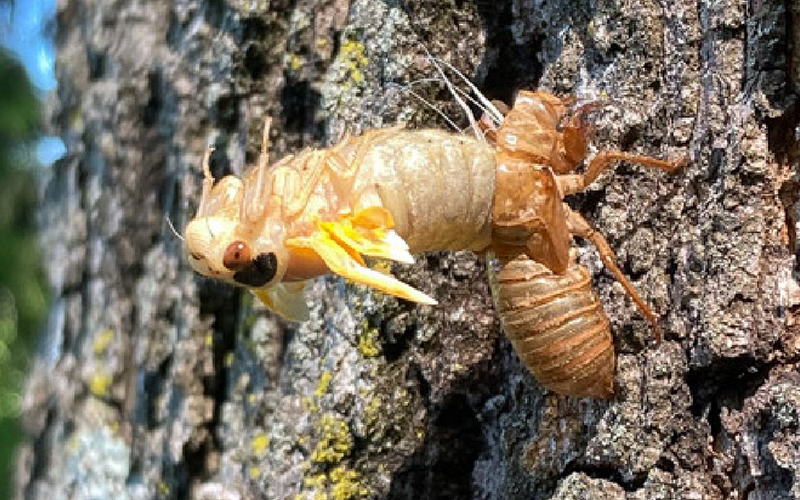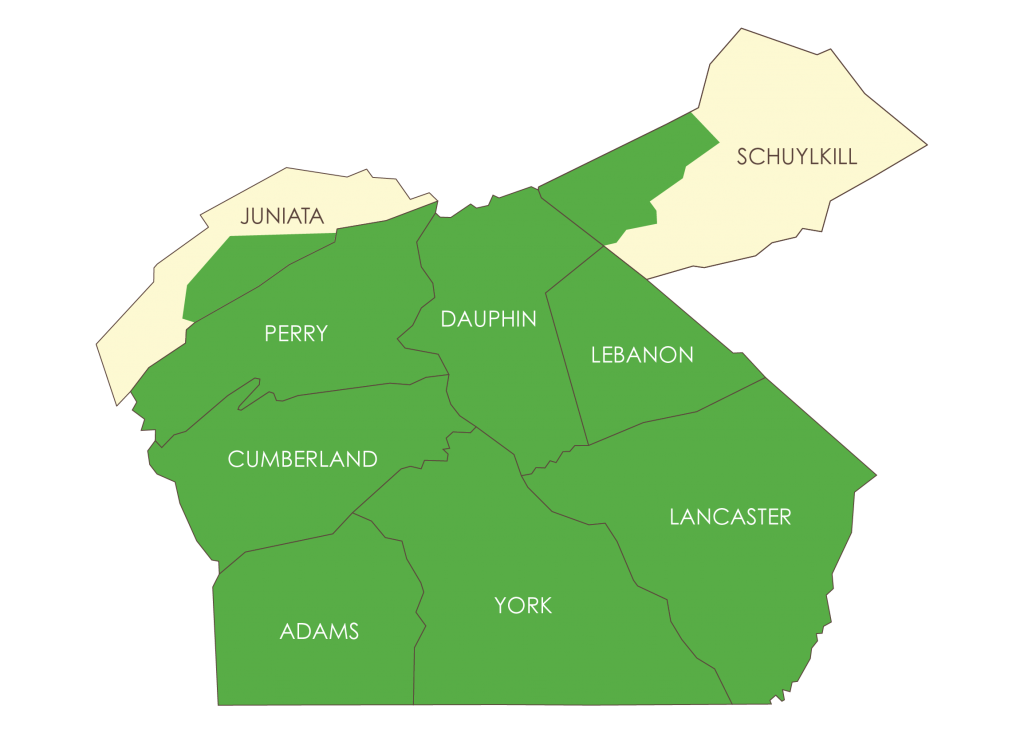Brood X (Roman numeral 10) of the 17-year cicada has been emerging in our region. For those of us who have been paying attention, it has felt like a process of fits and starts likely tied to the wild swings of temps and weather throughout the month of May. First there were the emergence holes appearing on the forest floor as the nymphs awaited the magic soil temperature of 64 degrees Fahrenheit when they would all come out of the ground by the billions never to return. This mass arrival at 17-year intervals has been a successful strategy for periodical cicadas known as prey satiation. There are so many all at once and at a frequency near impossible to match, that the predators who find them delectable quickly fill up leaving the many survivors to mate and lay their eggs to begin the next 17-year generation.
At this time, most have emerged from the ground, climbed vertical structures where they shed their exoskeleton, transforming into winged adults. These adults, the ones fortunate to have eluded all that want to eat them, have taken flight to the treetops and the males have begun their eerie chorus call to attract a female. This mating will continue for a few weeks. The noise will subside as the adults die off. Eggs deposited in the twigs of trees will hatch in late summer and the first instar nymphs will fall to the ground. For next 17 years they will live underground feeding on the roots of trees.



